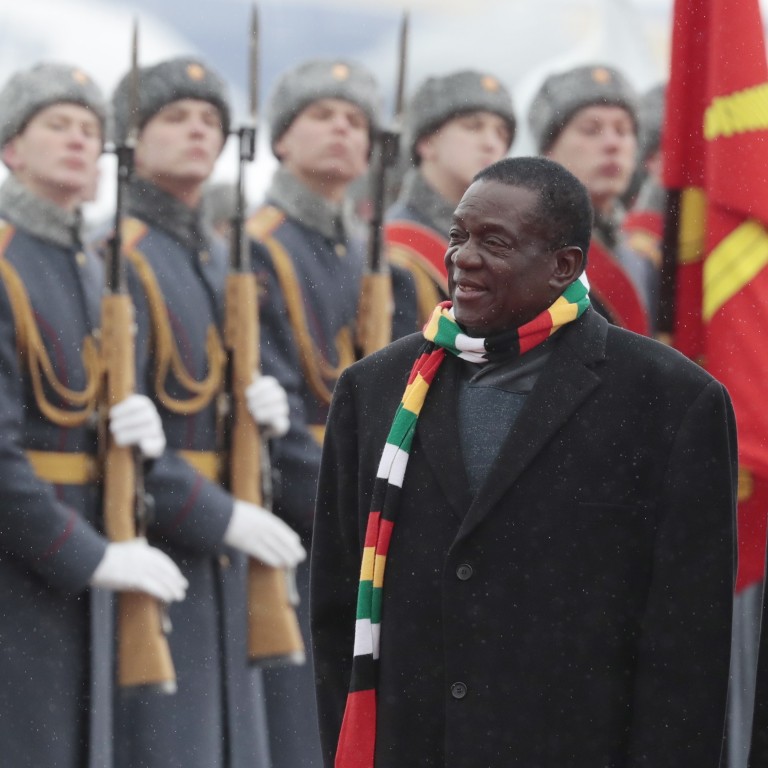
Mnangagwa in Moscow asking for aid as Zimbabwe descends into chaos
- Dozens injured and five reportedly killed in protests across the country against fuel price increases
Zimbabwe’s President Emmerson Mnangagwa said he’s seeking loans from Russia on a visit to Moscow after protests erupted across his country on Monday, leaving 24 people injured and five possibly dead.
“I can’t say that we want this much or that much,” he said in an interview with the state-run Russian news agency RIA Novosti published on Tuesday before a meeting with Russian President Vladimir Putin. The Kremlin announcement of the talks made no mention of loans and Moscow has in the past been reluctant to bail out struggling allies, though Russia has recently been building ties in Africa.
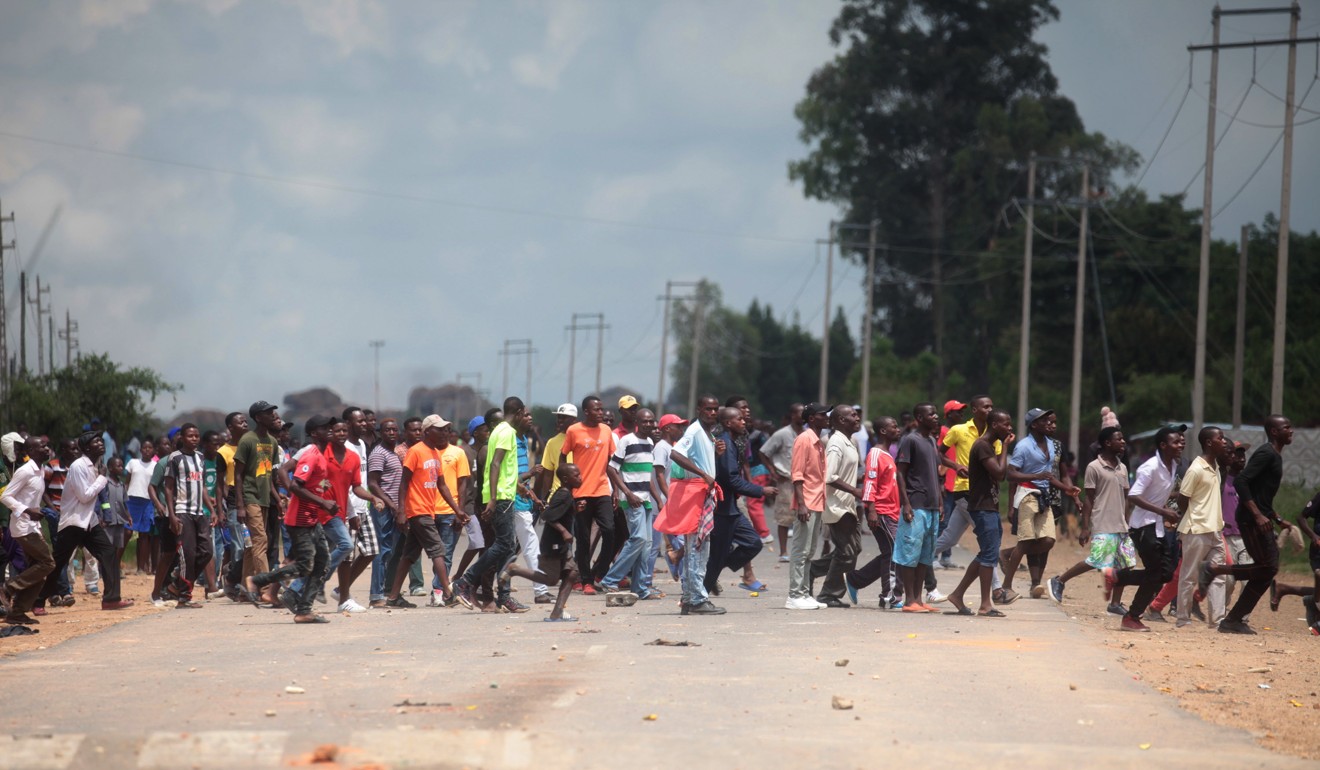
RIA also quoted Mnangagwa as saying Zimbabwe may need Russian help in modernising its army in the future.
In Zimbabwe, a military helicopter fired tear gas at demonstrators blocking a road and burning tires on a second day of protests after the government more than doubled the price of fuel, making it the world’s most expensive when compared to prices quoted by GlobalPetrolPrices.com.
The protests spread from the capital, Harare, to the second city of Bulawayo and some smaller towns.
The Zimbabwe Association of Doctors for Human Rights said 13 protesters were treated for gunshot wounds on Monday. NewsDay, a Harare-based newspaper, reported the same organisation as upping the number of injured to 24 and five killed during the demonstrations.
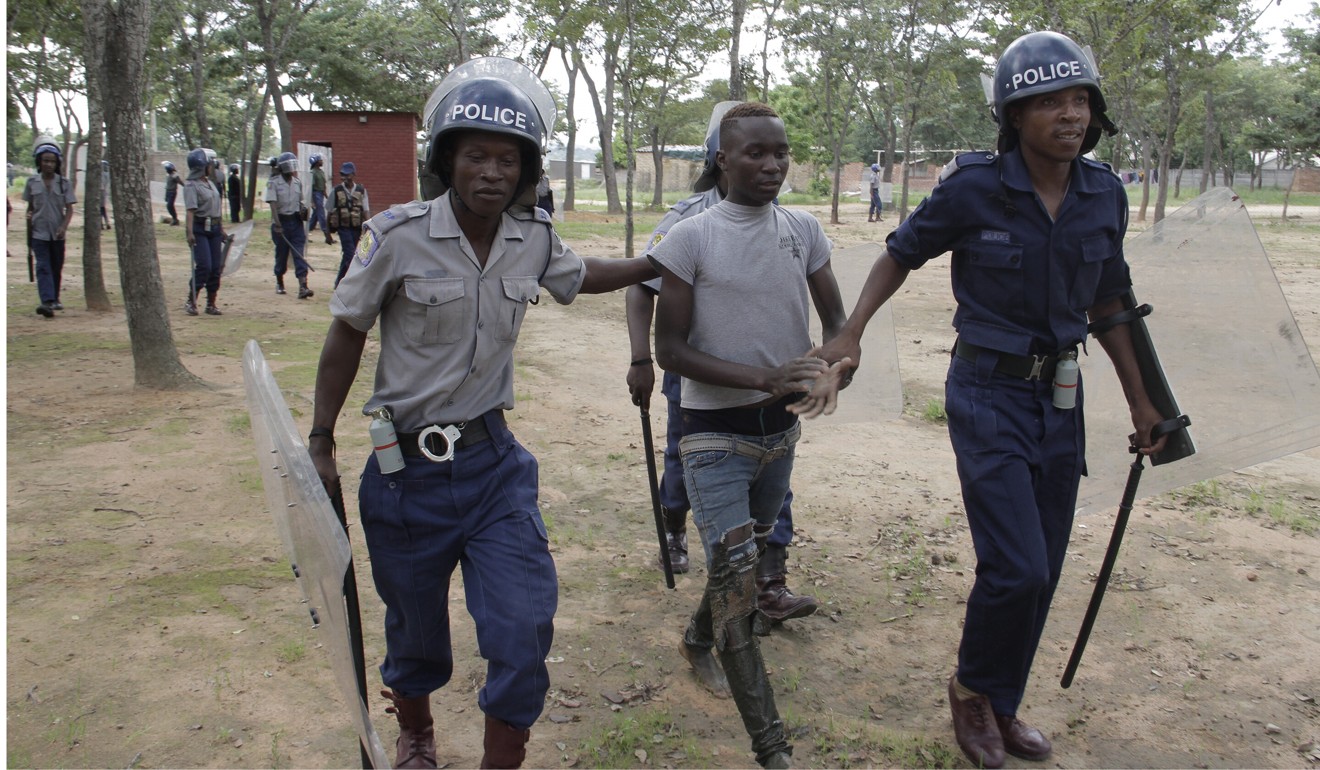
Soldiers have moved in to disperse crowds at the busy intersection and transport hub in the capital, Harare, amid Zimbabwe’s biggest unrest since deadly post-election violence in August. Witnesses also reported violence in the eastern city of Mutare, where people attacked passenger buses and destroyed some shops.
Businesses and schools have been shut down and public transport vehicles are grounded in most of the country.
Authorities ordered internet service providers to restrict access to social-media sites including Facebook and WhatsApp, TechZim reported on Tuesday.
The opposition Movement for Democratic Change said in an emailed statement its headquarters in Harare were broken into on Monday night and set on fire by unknown assailants.
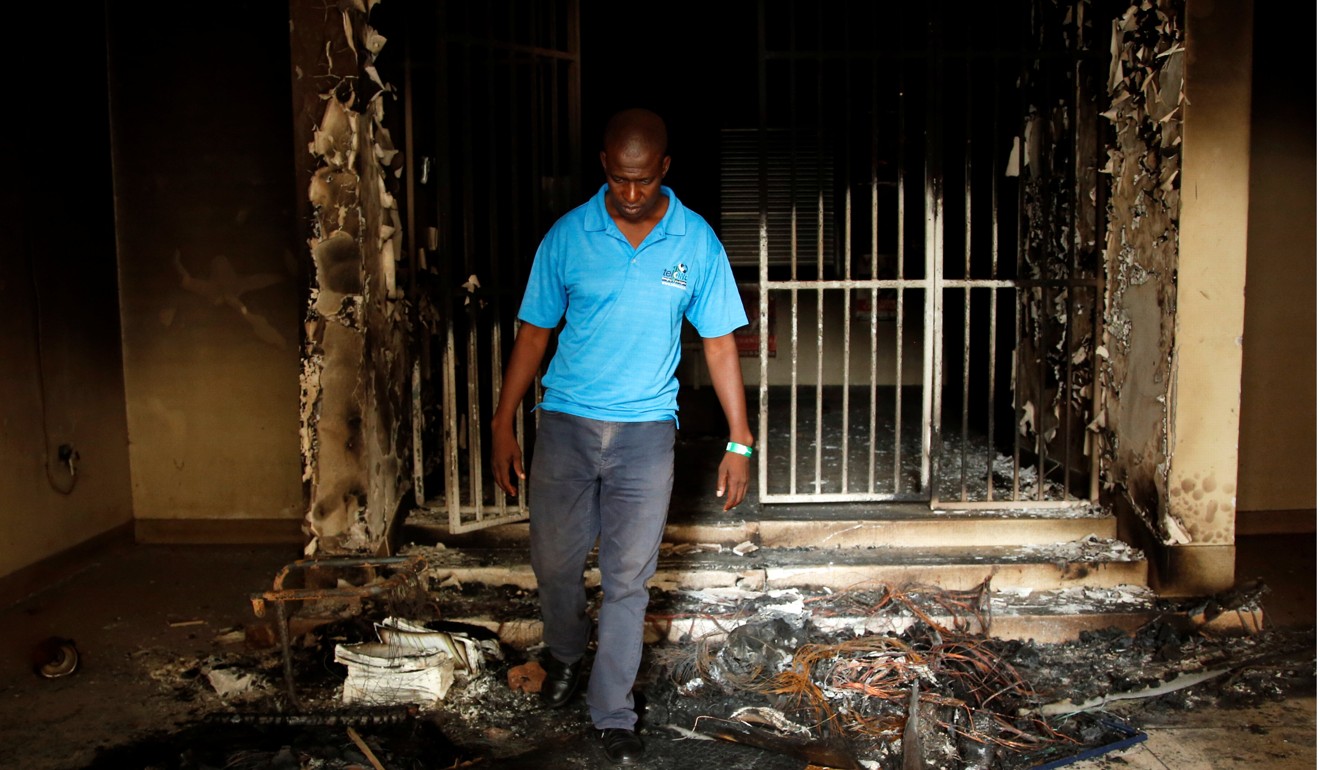
Mnangagwa’s trip to Russia, which began Monday, was planned before the protests erupted. He is also expected to visit Kazakhstan, Belarus and Azerbaijan before flying to Davos, Switzerland, in an effort to raise investment for his economically blighted nation.
Tai Po villa, occupied by wife and daughter of Zimbabwe’s former president, sold in Hong Kong for a 15 per cent loss
In the RIA interview, he invited Russian companies to discuss investing in oil and gas projects in Zimbabwe, as well as in the energy sector. Russia’s state-owned diamond giant Alrosa PJSC on Monday announced plans to return to Zimbabwe to develop new mining operations with the support of the government.
Mnangagwa rejected opposition allegations that Russia or China meddled in the elections that brought him to power in 2017.
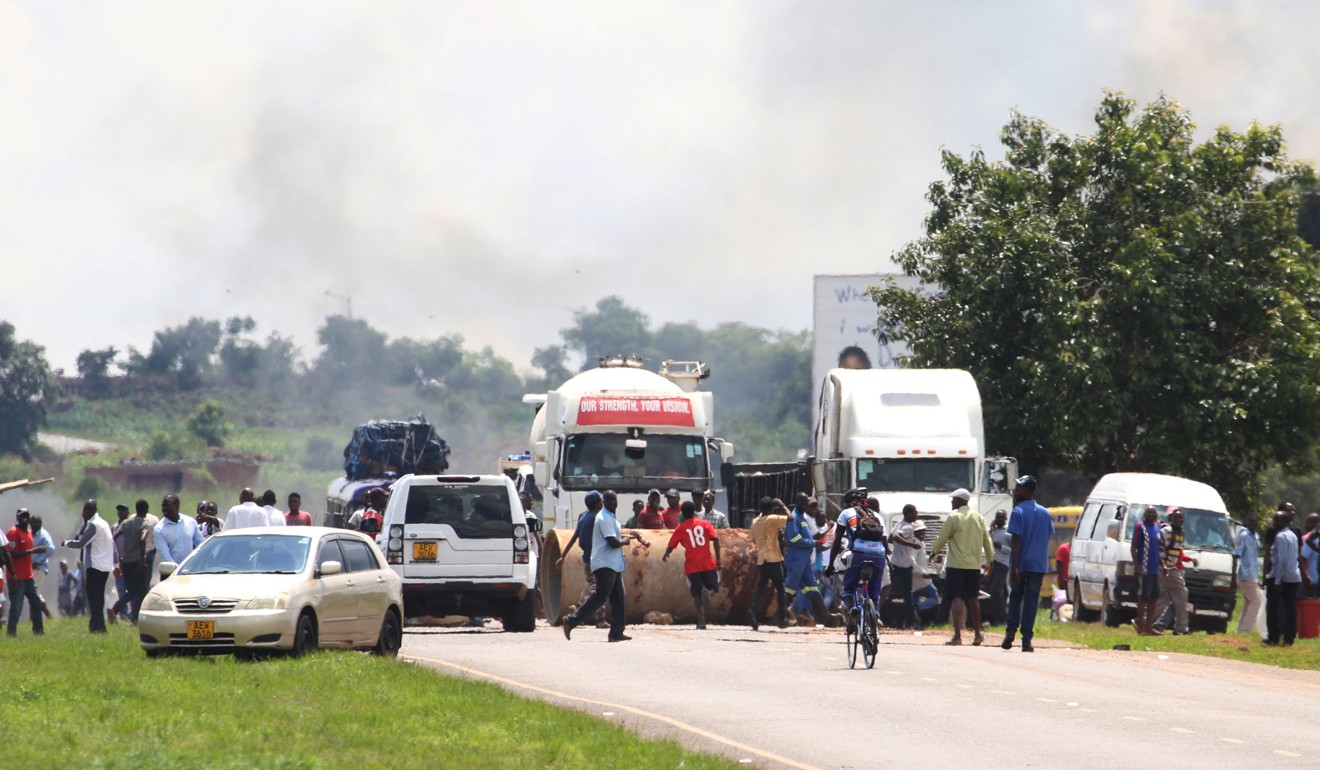
In Zimbabwe, Mnangagwa’s absence leaves Vice-President Constantino Chiwenga, a retired general, in charge of the country.
Security Minister Owen Ncube told the state-controlled Herald newspaper that the MDC, non-governmental organisations and civil-society bodies were to blame for Monday’s violence.
How Zimbabwe paid the price for hyperinflation, offering a grim lesson for Venezuela
“The prevailing security situation in the country is a culmination of a well-orchestrated series of events by the MDC Alliance working in cahoots with NGOs, civic society, youth organisations, pressure groups and individuals,” he told The Herald, adding that the “MDC Alliance activated its notorious terror groups.”
The Zimbabwe Congress of Trade Unions, which called for three days of protests on Sunday, urged Zimbabweans to continue the demonstrations today.
Bloomberg, Associated Press, Agence France-Presse, Reuters
